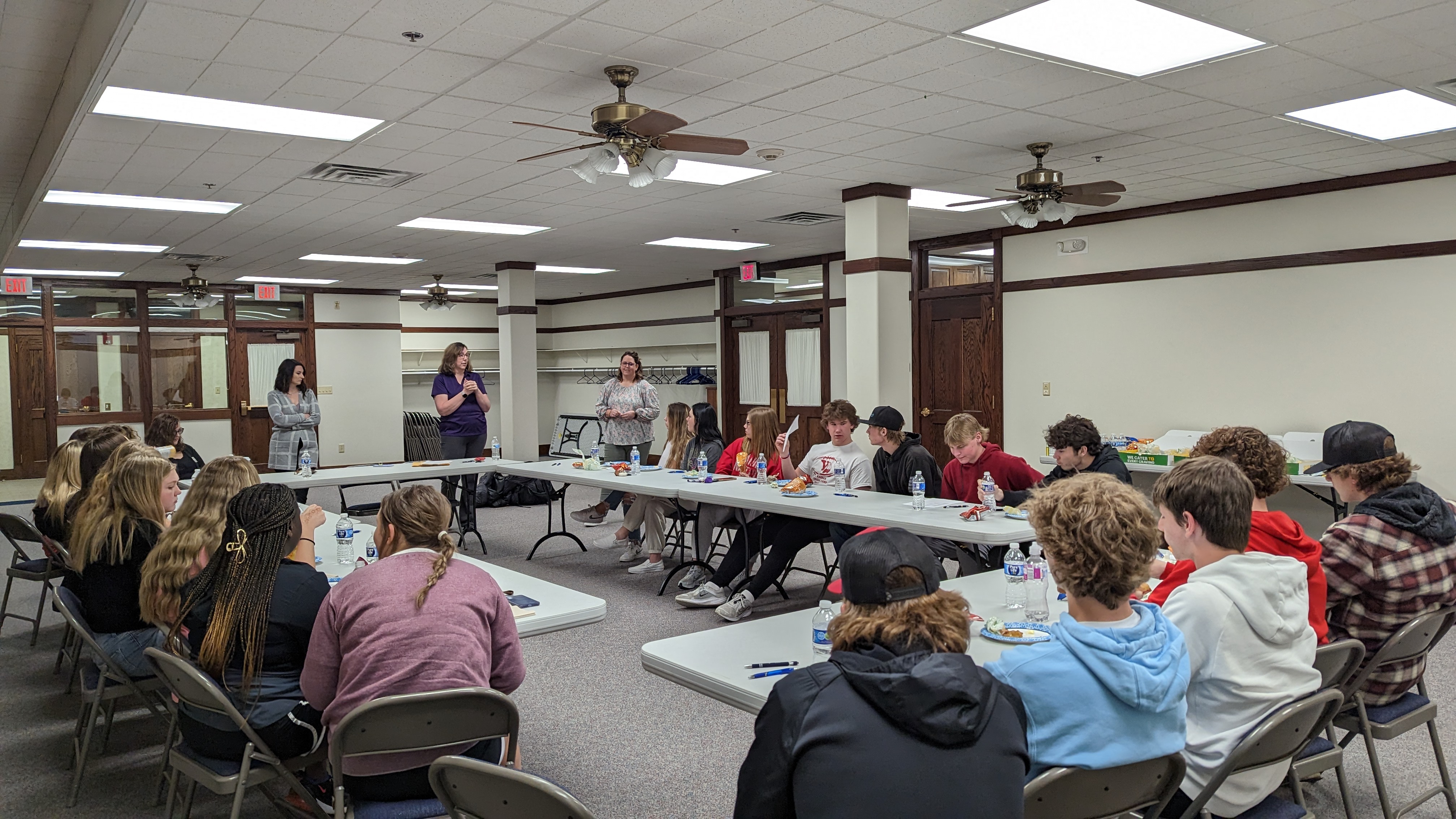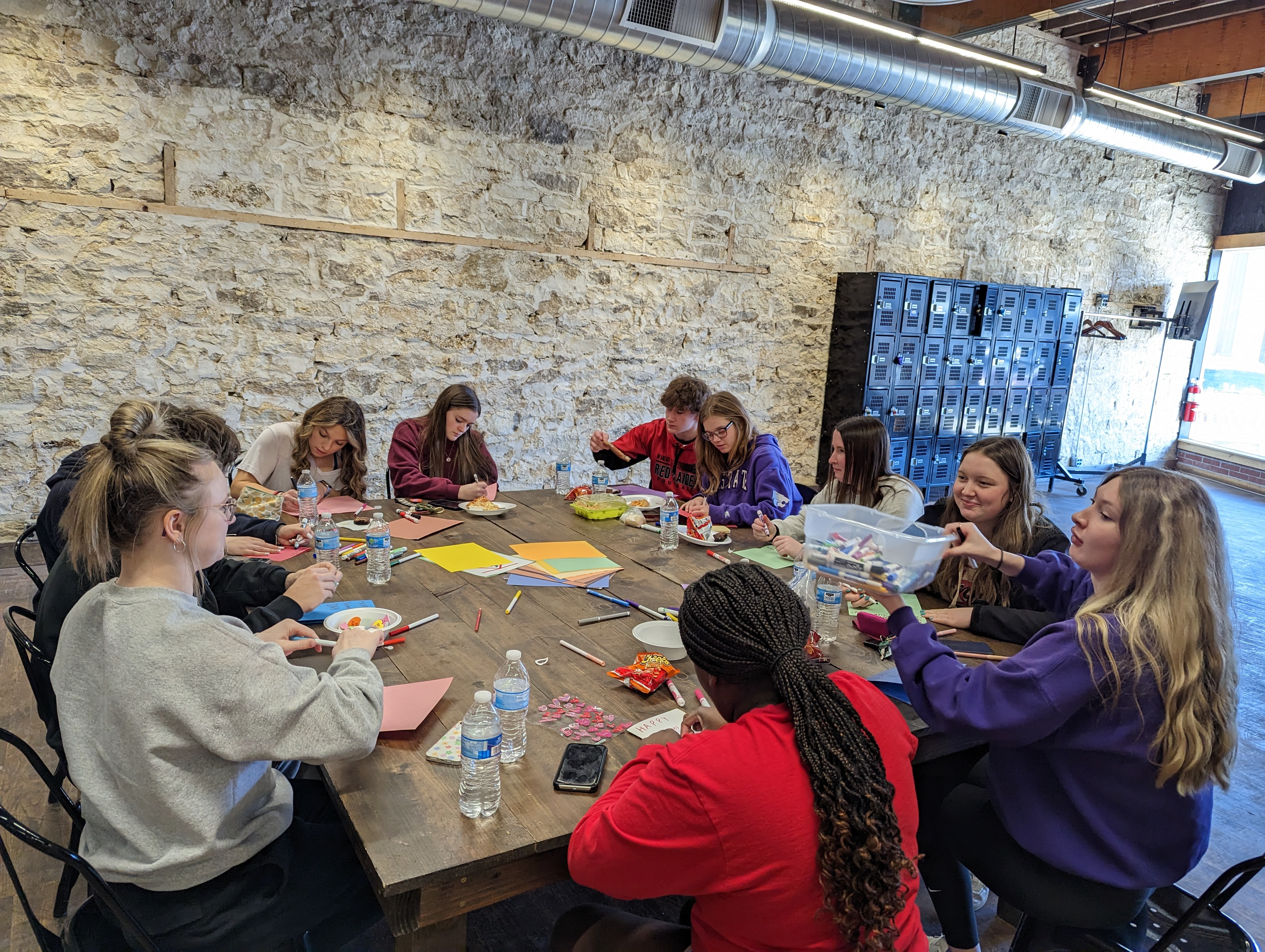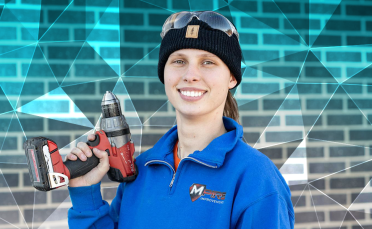Peer Chamber Offers Leadership, Work Experience, and Community Connection

Connecting high school students to local leaders and businesses may seem like a tall order, but a thriving Peer Chamber organization in Wamego offers a model that you could adapt to your school and community.

Kiley Moody is co-sponsor of Peer Chamber along with Jessica Bonewitz. Moody teaches English language arts for seventh and eighth graders, and Bonewitz is a counselor at the high school. Moody said exposing kids to new adults helps build their confidence as they contemplate next steps after high school. A December “Jingle and Mingle” event is particularly popular and gives students the opportunity to develop and practice an elevator pitch.
“This is informal, and kids are interacting with adults who are not in a position of authority. They find out, ‘You are just a person like me! You are not so scary,’” Moody said. Practice introducing themselves and telling someone about their goals in a safe, low-risk environment is great experience and has helped several students find part-time jobs at local banks, Wamego Public Library, the Chamber of Commerce, and more.
Another priority of Peer Chamber is volunteering. The group connects students with community events and organizations that need help, such as the Tulip Festival and Oztoberfest, large community events held in April and October, plus a huge community July 4 celebration. Putting in the time to set up, staff an event, or clean up after a festival or parade helps students see and understand what it takes to make things happen in the community. It also fosters connections among generations.
“There’s a lot of talk about division, and a lot of this comes down to different generations in the workplace and in schools and communities. Peer Chamber provides an opportunity for people to talk and find out we’re not as different as we thought,” Moody said.
Talking to people of different generations also helps the students see that many different paths can lead to success. Moody said students learn not everybody’s path is a straight line, and that skills they acquire working at summer jobs like pool concession stand worker or restaurant server can help them prepare for the future. Wamego Area Chamber of Commerce Executive Director Jessa Peterson added that Chamber members enjoy playing a role in helping students build skills and find opportunities.
“We have business members come and interact with the students, and we always have a great turnout. There’s so much pride in the community, and anytime you can give a young person the opportunity to learn skills they are going to need as adults, it’s powerful,” Peterson said.
Moody said her favorite part of Peer Chamber is encouraging students to view themselves as leaders.
“Young people are told too often, ‘You need to wait.’ If you give them a role, it helps them see they have potential and capacity, and they are going to see themselves differently and show up in a different way,” Moody said.

“We’re teaching them what it means to be part of a community, being a volunteer, and how you can lead without a title or position,” Moody said.
Peterson said that investing in high school students and encouraging leadership and volunteerism pays dividends for the community.
“This program helps students connect with people and teaches deeper skills they will carry through life. If they leave, they will take those skills with them, but some will return, and they’ll bring those skills back to the community and help carry on what I call the ‘Spirit of Wamego,’” she said.
If you’re looking to start a Peer Chamber or similar group in your community, Moody offers a few tips. She also welcomes questions via email at [email protected].
- Work with teachers: Having teachers in the school who can connect with the Chamber or community is key. Teachers see students often, so they can remind students of the organization’s value and help them remember to sign up and attend events.
- Consider options: If your community doesn’t have a Chamber of Commerce, consider other options. Many schools have a leadership class, for example, or some other course or group that could provide opportunities to connect with local businesses and volunteer opportunities.
- Adjust for size: Peer Chamber or a similar program could work in a community of any size, but you might need to make adjustments. In a larger community, you could concentrate on high school juniors, for example, to help prepare them for decisions and opportunities that come during their senior year.
- Define jobs broadly: Be sure to include a range of businesses and professions in panel discussions or mixers for the students so they meet a combination of entrepreneurs, tradespeople, white-collar professionals, and more.
- Model a growth mindset: Help students learn that they can cultivate their abilities through effort and working to achieve a goal. Remind them that they can help their community and be a leader, and that getting to an end result – whether that’s holding a community festival, owning a business, or finding a career path – takes planning and time to be successful.



